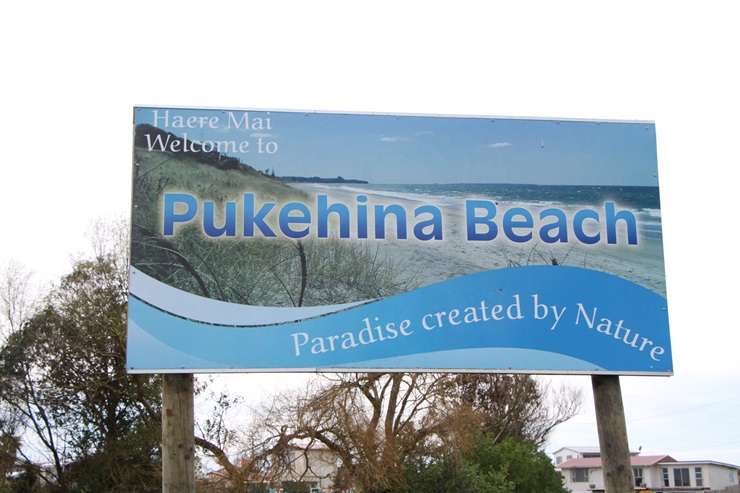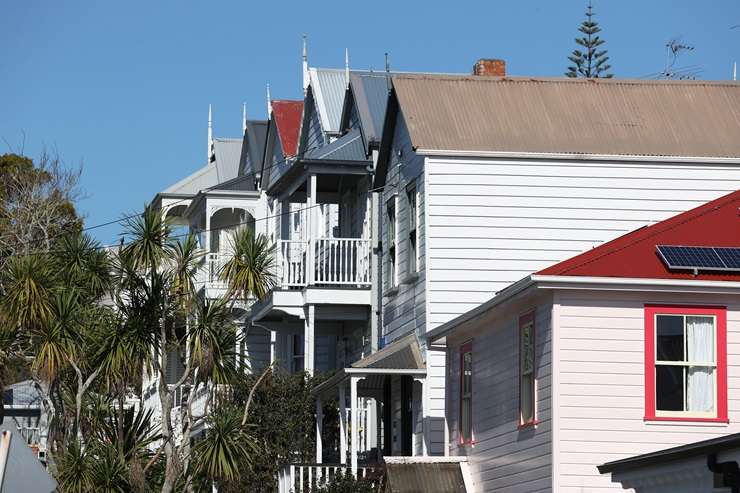Rising interest rates have wiped out any savings buyers may have made from falling house prices, with new research from CoreLogic showing mortgage repayments have rocketed in the past 12 months.
Fortnightly mortgage repayments in November were up by more than $200 in almost a third of the country’s suburbs, with unlucky buyers in 15 locations facing repayment jumps of more than $500 a fortnight.
Even buyers in affordable suburbs are being squeezed by interest rates. In Otara, South Auckland, fortnightly mortgage repayments were up $168 year-on-year to $1916.
The CoreLogic data highlights the scale of the challenge facing first-home buyers, even after a 13.2% decline in the nationwide average value, and suggests that the financial pain is only going to get worse as prices start to rise again.
Start your property search
CoreLogic calculated for each suburb the 12-month change in fortnightly mortgage repayments, based on median property value data and a 1.5 percentage point rise in interest rates.
Of the 932 suburbs and towns captured in the CoreLogic data, 876 suffered higher mortgage bills despite property value declines, with just three suburbs – Bluff Hill, Marton and Featherston – enjoying lower fortnightly repayments.
Some of the biggest repayment jumps, in both dollar and percentage terms, were due to slump-defying price rises. The popular beach town of Pukehina, in the Western Bay of Plenty, saw the biggest leap in fortnightly repayments, from $2279 to $3028 – a 32% rise that equated to an additional $19,474 a year. But this was due to a 13% year-on-year rise in the town’s median property value.
Read more:
- Homeowner has to stump up extra $3500 a month as interest rate doubles
- Tony Alexander: Expect house prices to rise 10% in 2024
- Revealed: Where council rates are hurting property investors
The second biggest repayment jump, percentage wise, was in Karoro, where the median property value is just over $500,000 – $42,000 higher than it was a year ago. The suburb, just south of Greymouth, on the West Coast, saw fortnightly repayments soar 27%, or $277.
However, buyers in Parnell, Auckland, saw their fortnightly repayment mortgage bill rise by $600 year-on-year, despite median property value in the wealthy suburb dropping $50,000 over the same period.
In nearby Ponsonby, the median property value dropped $180,000, but fortnightly mortgage repayments jumped $462.
Kelvin Davidson, chief economist at CoreLogic, said the figures pointed to savings for those who bought a year ago but the reality was more nuanced.
“You might have waited for prices to fall, but in the meantime, interest rates have gone up, and your actual payments are higher,” he said.

Recent buyers in Pukehina, in Western Bay of Plenty, are paying $750 a fortnight in mortgage payments more than those who bought a year ago. Photo / NZME

Fortnightly mortgage repayments in Ponsonby, Auckland, are up $462 year-on-year. Photo / Ted Baghurst
“In the long run, however, those buying now have a smaller overall mortgage. Okay you’re paying a bit more on the mortgage right now because interest rates are high. But interest rates will go back down again at some point, and then it’s great. You’ll have a smaller mortgage because you got a deal.”
He added: “If you can buy now and make it work, then buy now. You might pay a bit more on the mortgage. But if you wait you might miss out on the house you like. It’s never an easy decision and these numbers illustrate that at least in terms of mortgage repayments, it has been a challenge over the past year."
Buyers held off for the bottom of the market came unstuck in 179 suburbs, where the jump in mortgage repayments exceeded the money saved from lower prices.
For example, at the start of November the median property value for Northcross, on Auckland’s North Shore, was $1.33 million – $33,000 lower than it was 12 months ago. However, the fortnightly mortgage repayment was $410 higher, wiping out any benefits from the lower deposit requirement.
The pain was felt in other major metros. Recent buyers were left thousands of dollars out of pocket in Moncks Bay, Christchurch, where the $392 lift in fortnightly repayments year-on-year ended up exceeding the savings from a lower deposit by more than $8000. Buyers in Harrowfield, Hamilton, and in Kingston, Wellington, were similarly stung.

CoreLogic chief economist Kelvin Davidson. "Interest rates will go down at some point." Photo / Peter Meecham
Campbell Hastie, mortgage adviser at Hastie Mortgages, said that despite mortgage rates having tripled over the past couple of years, first-home buyers were succeeding in securing mortgages.
“In Auckland, it’s almost always double income families, with incomes in the $70,000 to $80,000 bracket. That’s the guts of it. They come through with two decent incomes and so long as they have the deposit and their spending habits are good or able to be adjusted, then we can get them across the line,” he said.
However, government schemes that allow first-home buyers to buy with low deposits weren’t much help in Auckland. “I haven’t seen Kāinga Ora being of a huge help because the First Home Loan programme where you have a 5% deposit is only really for lower priced property. In a high price market like Auckland, the dots don’t connect.”
Gareth Veale, of EasyStreet mortgages, said he had seen the phenomenon playing out in Christchurch, with buyers paying more in mortgage repayments, despite lower property prices.
He cited one young couple who have been trying to buy for the past nine months. They have watched mortgage rates continue to rise, when they could have locked in at a lower rate had their first offer been accepted. “They have put in six offers and none of them have been accepted,” said Veale.
“They are going to borrow $500,000 and the cost of the mortgage has gone up around $60 a week in that time. They are putting an offer in this week and are going to offer $30,000 more than they were going to. They know at the lower end of the market they are going to make that back up over time.
“It does feel like we’re currently at the bottom in Christchurch, but there is not enough stock [available for sale]."
Use the search field to find out the best mortgage deals available today.


















































































